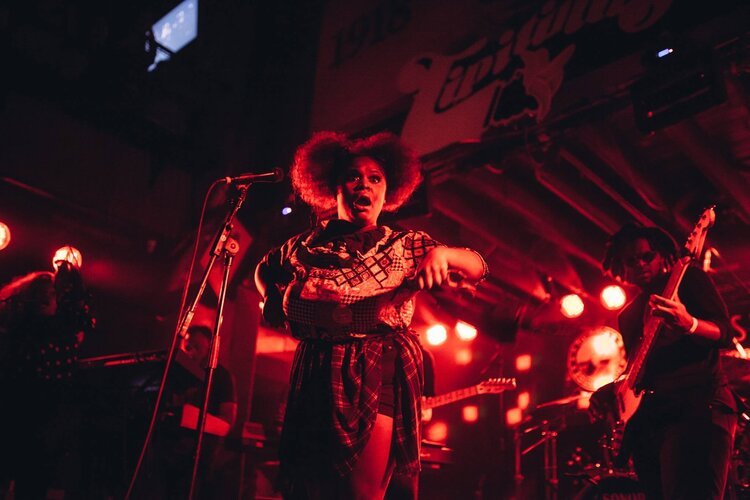The First Rule of New Orleans

Don't sell yourself or your city out.
If we have one duty to New Orleans, it's to not contribute to its caricature. We've spent years trying to assert that there's more to Carnival than boobs on Bourbon Street, that we're not drunkenly indifferent to work and the weather, and that there's more to our music than horns and accordions. This isn't a city of native "up from the pavement" talent, but a place where people at every level take music and creativity seriously, and just because the learning doesn't always take place in schools doesn't mean musicians aren't getting education in their craft.
I hope we'll fight the notion that accompanies our emphasis on a tourist economy - that we're a city on the make, trying to hustle a buck off any tourist bigass beered enough to part with it. That image has circulated since the days of "Bet I can tell you where you got them shoes," and it has musically manifested itself on Bourbon Street. A musician who played traditional jazz there told me that there was no point playing anything other than most standard standards because they were all tourists wanted to hear. Though he didn't say it explicitly, in his mind a CD wasn't a work of art but a souvenir, and the impulses that shaped T-shirt designs and shot glass art guided the creation of a CD.
A new album inspires these thoughts. The Dukes of Dixieland recently released Super Bowl @ Mardi Gras 2013, and if the title alone didn't signal that this was made with commemoration in mind, the song list says the album's not for locals. It collects not only such traditional jazz standards as "Saints" and "Bourbon Street Parade" but R&B tunes including "Big Chief" and "Mardi Gras Mambo." Jazz versions of these songs might be entertaining, but that's not really what the Dukes provide. Instead, they bend themselves toward the originals, with Luther Kent on vocals to add some panache. As a result though, the CD doesn't give you a sense of the Dukes' musical voice in 2013.
Super Bowl @ Mardi Gras 2013 makes me sad because its release suggests that after all these years, the Dukes don't understand that what people want to hear in music is the art of the band - its personality. That's the human element in all art, and it's what differentiates between writers, between painters, and certainly between musicians. By erasing that, they sell themselves out and condescend to the audience, as if tourists don't care about the difference between their version of "New Suit" and The Wild Magnolias' version, that the song's the thing and not its performance. Recording an album of Carnival favorites in 2013 also marks the band as one fighting the clock in an age when tourists could buy the best-known, best-loved versions of these songs on iTunes and don't need someone to remake the songs to put them all in one place.
I sympathize with the impulses behind the CD. These are financially tough times to be musicians, particularly ones with such a historic name. But as New Orleans musicians in a host of genres including traditional jazz are demonstrating, there's a market for what they do - particularly when the musical personality is strong and defined.
That's a lesson the city needs to carry forward in the days after the Super Bowl. New Orleans is at its best when it is itself, and efforts to mainstream us put at risk the elements that have drawn visitors to the city since the 1800s. It's what made so many of us move here and stay here, and it's what motivated so many to work to get home after Katrina. It's tempting when there's so much money to be had out there, particularly when we seem to be betting big on tourism, but the more we blur the distinction between the Crescent City and other places, the less special and attractive we are.






